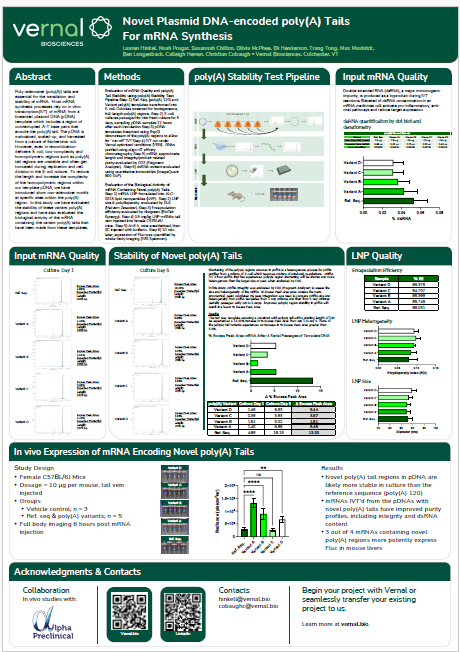Poster Abstract: Poly-adenosine (poly(A)) tails are essential for the translation and stability of mRNA. Most mRNA synthesis processes rely on in vitro transcription(IVT) of mRNA from a linearized plasmid DNA (pDNA) template which includes a region of uninterrupted A-T base pairs that encode the poly(A) tail. The pDNA is maintained, scaled-up, and harvested from a culture of Escherichia coli. However, even in recombination-deficient E. coli, low-complexity and homopolymeric regions such as poly(A) tail regions are unstable and often get truncated during replication and cell division in the E. coli culture. To reduce the length and increase the complexity of the homopolymeric regions within our template pDNA, we have introduced short non-adenosine motifs at specific sites within the poly(A) region. In this study we have evaluated the stability of these variant poly(A) regions and have also evaluated the biological activity of the mRNA containing the variant poly(A) tails that have been made from these templates.

